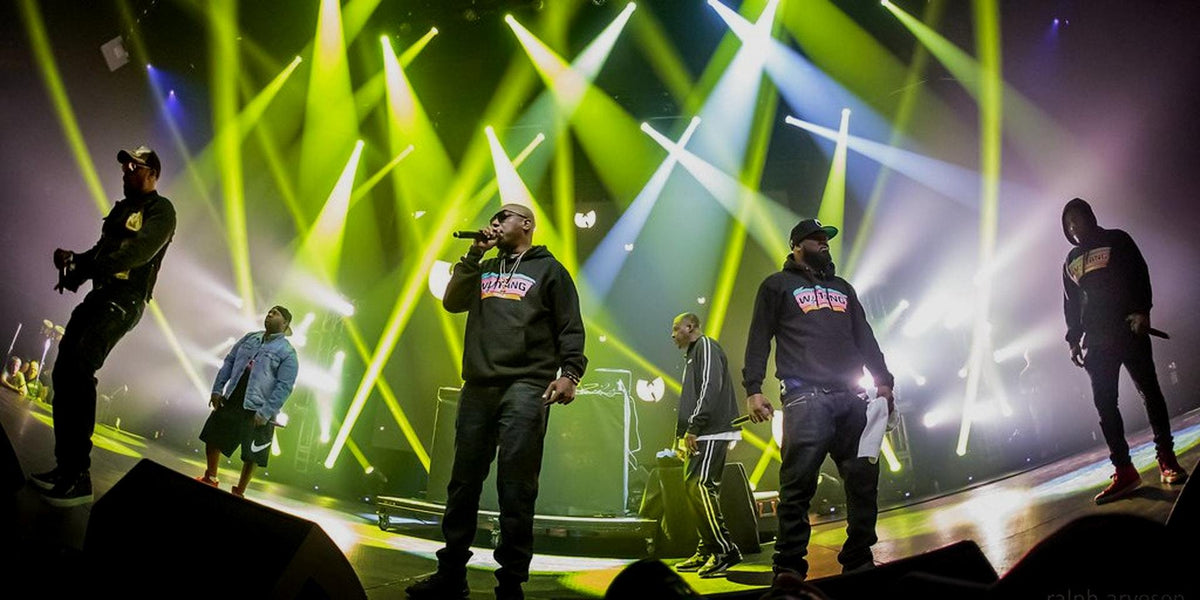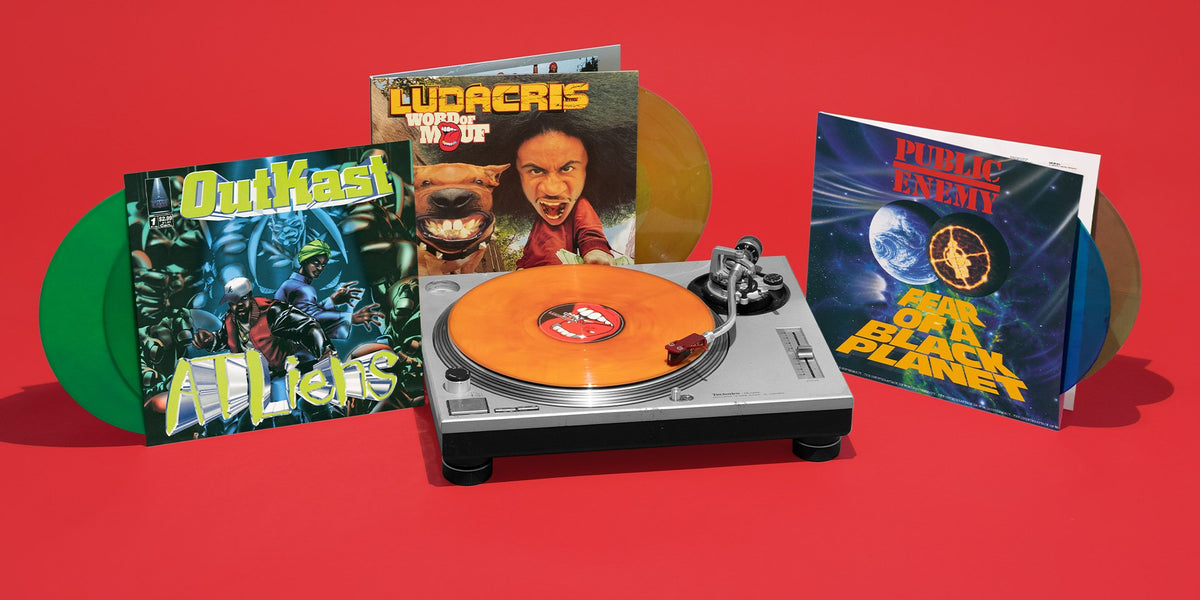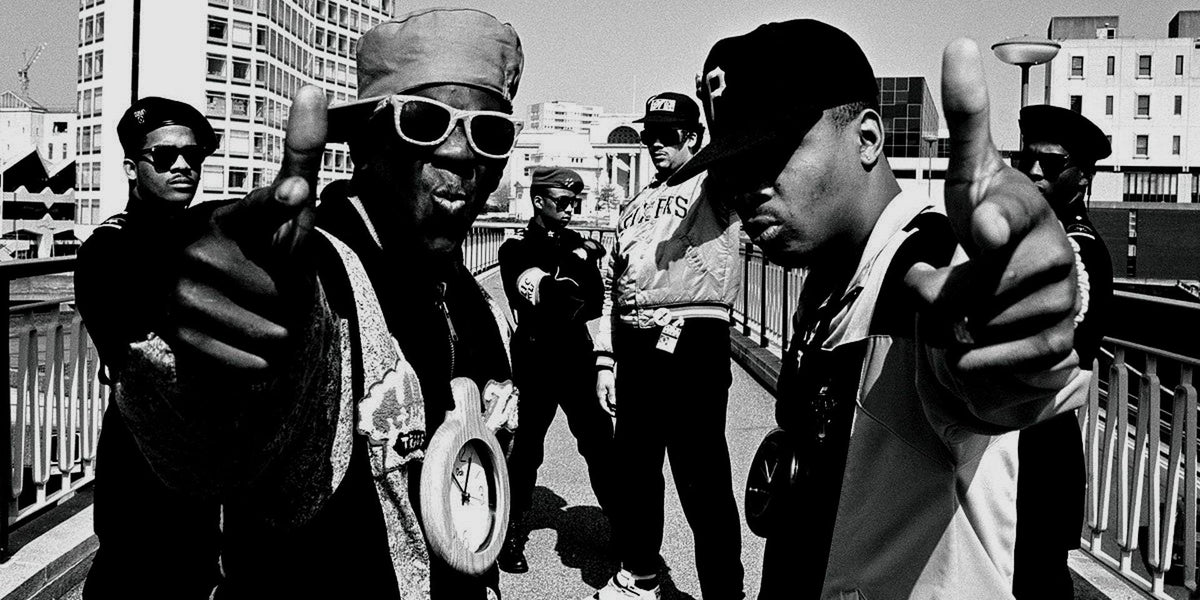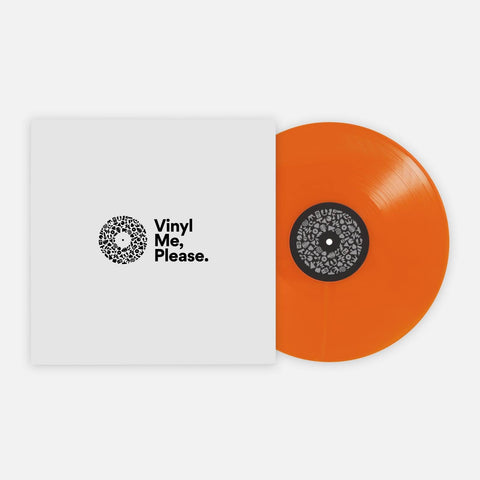Public Enemy’s Manifesto
Breaking Down the Context, Samples and Impact of ‘Fight the Power’
Protest songs, whether from the lips of Pete Seeger or Chuck D, often move us because they take something hyper-specific and strive to make it universal. Public Enemy’s “Fight the Power” was written in response to a particular moment, but has transcended its intended NYC streets and spread as far as the Serbian capital of Belgrade to protest Milošević’s regime in 1991, which was cited as the reason it was No. 1 on Time Out’s 2011 list of the 100 Songs That Changed History.
The idea that led to the creation of “Fight the Power” — the song by Public Enemy that everyone knows — was simple: Spike Lee was making a movie (1989’s Do the Right Thing) about the racial tension, tragedy and violence in New York, and he knew he wanted Public Enemy to soundtrack it.
In an interview about the making of the song with Rolling Stone, 25 years after its release, Chuck D said: “All I remember was Spike was saying, ‘I’m looking for an anthem.’”
And an anthem they delivered: dense with allusions, musical and political, it’s as simple as the chorus says: “Fight the power! / We’ve got to fight the powers that be.” There are references to speeches from Civil Rights leaders and it is packed full of layers of Black funk and soul (17 samples in the first 10 seconds alone, Chuck D told Keyboard magazine in 1990 — out of the “150, maybe 200 samples on Fear of a Black Planet”). Among the numerous samples are the sounds of James Brown, Sly & the Family Stone, Afrika Bambaataa and even a snippet of Public Enemy’s “Yo! Bum Rush the Show.”
The group lifted the song title, and sentiment, from The Isley Brothers’ “Fight the Power”; hearing their song at 15, Chuck D told NPR in 2018, “that was the first time I ever heard a curse on a record.” In that interview, he spoke with Ernie Isley about the origin of the original “Fight the Power” and how the Public Enemy version came to be. Chuck D said he told Spike Lee, “We don’t want to sample from the record. What we want to do is carry the torch of the meaning — to yell and scream back at hypocrisy.” They yelled and screamed again in 2020 when they remixed the song, featuring Nas, Rapsody, Black Thought, Jahi, YG and Questlove.
As the Listening Notes from Dylan “CineMasai” Green explain in greater detail, after the release of “Fight the Power,” Fear of a Black Planet almost wasn’t made, due to controversy over anti-Semitic remarks made by Public Enemy’s “Minister of Information” Professor Griff. If we were experiencing the album rollout of Fear of a Black Planet in our current context — when even proponents of restorative justice can be quick to cancel artists and other public figures for less — it’s possible we wouldn’t have seen the rest of the album come to fruition. The group saw consequences at the time: Public Enemy temporarily disbanded, and faced backlash for the remarks. But “Fight the Power” and the whole of Fear of a Black Planet are products of a unique set of circumstances; it was the ’90s, and with allies like Spike Lee and the need for someone to speak to the violent racism in New York City at the time, Public Enemy became spokespeople for the revolution.
In a 2016 reflection on the album for Pitchfork, Dorian Lynskey wrote: “The history of political music — hell, any form of political engagement — tells us over and over that you can be radically progressive on one front and dismayingly reactionary on [another]; that your heroes can sometimes act like villains; that a sharp mind and a good heart have their limits.”
We have to be comfortable with this tension, in which something like “Fight the Power” can be anthemic, a protest song of its particular moment yet also universal in its application, and still come from speakers who are flawed. Maybe the song hasn’t changed the world, but it’s been a rallying cry for people who have been nodding along since 1989 — and it might just yet.
Theda Berry is a Brooklyn-based writer and the former Editor of VMP. If she had to be a different kind of berry, she’d pick strawberry.
Related Articles
Join the Club!
Join Now, Starting at $36Pages







